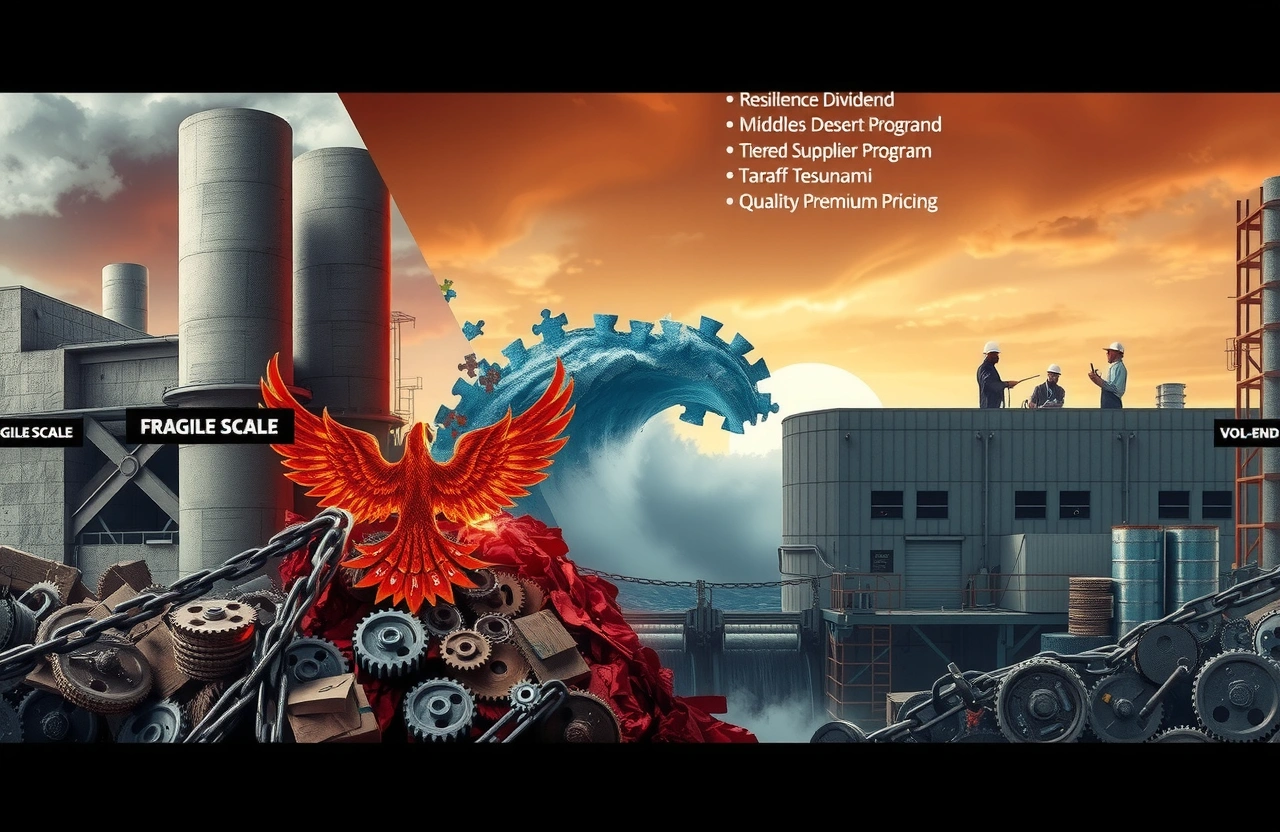The Perils of Scale Without Substance
In the hushed conference halls of Shenzhen’s ‘2025 China Enterprise Overseas Expansion Summit’, Zhu Lei (朱磊), Gree Electric’s Marketing Director, delivered a trenchant critique destined to ripple through manufacturing boardrooms. Addressing peers under this year’s theme ‘For An Open World’, Zhu highlighted a treacherous paradox plaguing Chinese enterprises: corporations achieving massive scale through low-value supply chains discovering how quickly that edifice crumbles under market pressures. This fragile scale built on low-end supply chains, he argued, jeopardizes not only corporate survival but consumer welfare and industry advancement.
The summit, co-hosted by Phoenix Network and the China Enterprise Globalization Council, convened amid shifting global trade patterns. Zhu’s analysis arrives at precisely the moment where supply chain resilience dominates strategic planning. Drawing explicit parallels between Gree’s sustained 13% overseas margins and competitors’ razor-thin profits, his warning crystallizes an urgent choice: pursue hollow volume or build substantive value.
Key Points From Zhu Lei’s Analysis
- The profitability crisis: Mass-scale producers operating on margins vulnerable to single market disruptions
- The consumer impact: Price-focused strategies locking buyers into lower innovation tiers
- Leadership’s stabilising role: Pioneering firms establishing profit benchmarks for entire sectors
- The resilience dividend: Gree’s counter-strategy maintaining double-digit margins globally
The Anatomy of Fragile Business Structures
When Zhu references enterprises collapsing ‘at the first sign of trouble’, he describes a specific operational fragility. Companies relying on thin-margin, high-volume models face existential threats from minor supply chain disruptions—whether tariff adjustments, commodity price swings, or shipping delays. This fragile scale built on low-end supply chains exhibits three critical vulnerabilities:
Profit Margin Compression Trap
The pursuit of volume through commoditised production creates a self-destructive cycle. As competitors race to undercut prices, manufacturers sacrifice:
- R&D investment: Allocating less than 1% of revenue toward innovation versus Gree’s sustained 7-9%
- Quality control: Accepting higher defect rates to maintain low production costs
- Supplier relationships: Prioritising bargain sourcing over mutually-beneficial partnerships
An International Monetary Fund analysis of 12,000 manufacturers revealed firms with margins below 5% were >400% likelier to collapse during demand shocks than those maintaining >10% margins.
Consumer Impact of Shallow Scaling
Critically, Zhu emphasised this approach harms customers: ‘Consumer purchasing power fails to elevate when businesses prioritise prices over advancement.’ Industries concentrating on affordable entry-level options often stagnate technological progress, denying buyers higher-tier innovation.
Industry Leaders Anchoring Sector Stability
Contrasting vulnerable competitors, Zhu highlighted Gree’s counter-strategy: rather than chasing volume through fragile scale built on low-end supply chains, establishing premium benchmarks that lift entire sectors. ‘Air conditioning enjoys healthy industry profits because Gree upholds the standard,’ Zhu stated. Overseas operations consistently clear 13% net margins—creating ‘cover’ enabling competitors to maintain sustainable 9-10% profits through competitive emulation.
Building Resilience Through Leadership
Gree’s global positioning reflects Wang Hongzhang’s (王宏伟), Gree’s Head of Global Strategy, operational pillars:
- Vertical integration: Controlling >80% component production in-house
- Quality premiums: Maintaining pricing power through IP-backed innovation
- Regional adaptation: Developing Middle East-specific cooling systems resisting sand corrosion
This leadership stabilises markets not through dominance but viability—demonstrating profitable models competitors can sustainably adopt.
Beyond Gree: Blueprints For Resilient Scaling
While Gree exemplifies appliance sector resilience, Zhu’s warnings resonate across industries. Pharma giants streamlining active ingredient production, electronics assemblers controlling chip sub-components—all distil lessons for escaping the fragility trap.
Ecosystem Development Versus Volume Growth
The China Centre for International Economic Exchanges advocates supply chain ‘de-commoditisation’:
- Tiered supplier programs developing SME technical capabilities
- Shared R&D facilities lowering innovation barriers
- Cluster-based specialisation around regional advantages
When Anhui Province manufacturers transitioned from bulk ceramics to engineered industrial components, average margins tripled while regional export revenue grew 41% despite lower unit volumes.
The Path Forward: Substituting Resilience for Volume
As Zhu Lei concluded his SinoGlobal Forum remarks, he reframed scale measurement: sustainable enterprise metrics shouldn’t track shipping containers moved annually but revenue retained through disruptions. Companies locked in fragile models urgently need strategic pivots toward robustness.
Executive Actions For Transformation
- Stress-test supply chains against scenario-specific shocks (geopolitical, pandemic, sanctions)
- Map secondary/tertiary suppliers before disruptions occur
- Convert cost-cutting initiatives into margin protection programmes
- Establish cross-departmental ‘resilience task forces’ meeting quarterly
Prioritisation separates permanent enterprises from temporary operators. Corporate Asia invested heavily developing redundant logistics during pandemic disruptions—notably Maersk’s overland Vietnam-China rail alternative avoiding sea bottlenecks.
For executives navigating supply chain transformation, Zhu Lei’s message resets priorities: creating enterprises that endure market turbulence requires abandoning tenuous volume plays. Healthy industries demand leaders establishing sustainable economic foundations—what Zhu termed ‘holding up the sky’. Start recalibrating operations today—examine your weakest profit links before external forces expose them. The strongest businesses protect partners, consumers and sectors by making resilience their cornerstone.



